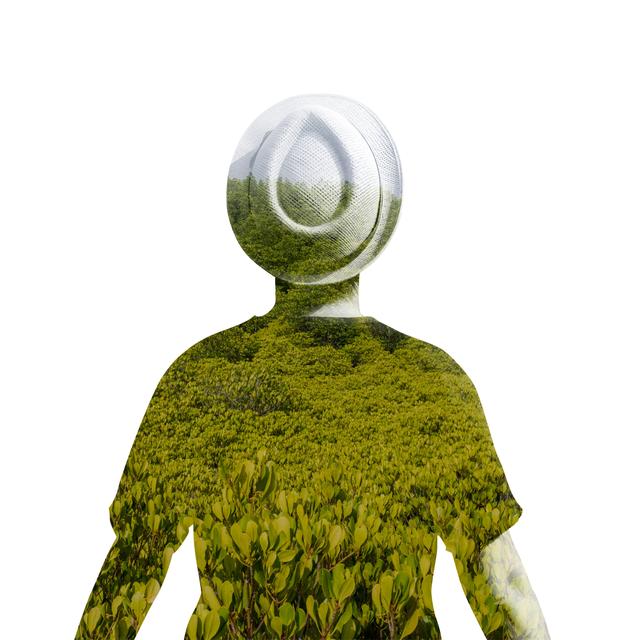The fashion industry's need to make sustainable operations the new norm to safeguard its future has become more evident in the past few years. No longer a buzzword, sustainability is slowly becoming an integral part of the industry. As the need for sustainable solutions arises, partners like Checkpoint Systems seek to support their clients in their pursuit of creating a more sustainable future.
Sustainability has become more than just a trend. It is a must, dominating the fashion agenda and consumer priorities. Today, more and more consumers are asking where the materials used to make their products come from, how and under what conditions the products are made and how the workers are treated. At the same time, fashion brands and retailers recognise the role they play in conserving the environment. Amidst increasing evidence of the industry's impact on the climate, there is renewed focus on the need for decarbonisation, reversing nature loss and limiting the use of natural resources as the effects of climate change become more evident. Despite mounting pressure, the fashion industry remains one of the least environmentally sustainable industries globally, accounting for approximately 2.1 billion tonnes of C02 emissions per year, equal to 4 percent of the annual global emissions, according to McKinsey. More than 70 percent of these emissions come from the production process and the supply chain, while the rest stem from retail, logistics and product use. The industry is also very resource-intensive, using significant amounts of land, water, wood, and chemicals to farm raw materials like cotton and wool. It is clear that every sector and area of the industry needs to focus on its breakthrough actions to meaningfully and comparatively contribute to reducing the impacts of climate change, and some key players are paving the way.
Around 125 leading companies, including Kering, PVH and Nike, have committed to pushing the fashion industry towards net-zero greenhouse gas emissions by 2050 through the UN Fashion Industry Charter for Climate Action launched in 2018. Others like H&M aim to become 'climate positive' and reduce more greenhouse emissions than produced by its supply chain by 2040 while taking on innovative models such as circular production. However, despite these commitments to reduce emissions and use better materials, fashion companies need to address sustainability in all tiers of their supply chain and improve industrial, logistical and retail processes at the same time. To help its clients achieve their sustainability targets, leading intelligent retail solutions provider Checkpoint Systems continually invests in innovations while setting its own ambitious environmental goals.

"Working sustainably is a must, a goal that we are consciously working on by developing new solutions and products that are better for the environment," says Mariano Tudela, VP Sales & Customer Operations MAS Europe at Checkpoint Systems. Offering their customers a broad range of materials and technical expertise, the company utilises its global network of facilities to ensure the production of its RFID, EAS Systems, and apparel labelling is as efficient and sustainable as possible. Its production facilities have been built to the latest standards andaccredited with multiple ethical and environmental accreditations and standards, including SEDEX, Reach, OEKO-TEX, GRS and ISO 14001. Through its creative teams, Checkpoint has been working to re-engineer its packaging based on customer needs and sustainable innovation. Investigating the use of alternative materials, print effects and finishes, the R-turn tag offered by Checkpoint Systems is a crucial example of its recent innovations. "This tag is a very easy item to place because it's not very expensive to produce, it does not require a huge investment but helps retailers reduce the amount of shipping due to fraudulent shopping (wardroping), which in terms is good for the environment." The company also has more sustainably labelling options, including recycled paper, recycled strings, and more. Clients can share their exact requirements for labelling options, and Checkpoint Systems will match their needs.
In addition, as a fully integrated RFID supplier, Checkpoint Systems also offers retailers a green advantage with its RFID implementation. As the company designs and manufactures its own inlays, these are converted into tags and labels that can be printed and encoded in their global production facilities, which are strategically located close to its retailers' vendors. Not only does this reduce overall emissions, implementing RFID solutions are essential to bringing more transparency concerning production and streamlining omnichannel solutions.
Mariano adds: "Our RFID Solution will bring more openness and clarification regarding the product to the end consumer, the retailer and any interested party as all the necessary data concerning the product can easily be gathered and shared, saving time, money and resources." The more data collected regarding production and supply chains, the better insights fashion companies and consumers have concerning products' impact on the environment and potential alternative solutions.
Fashion companies can also use RFID solutions to work more efficiently by better forecasting future demand and sell-through rates of products. As Mariano explains: "rather than ordering and producing stock that may not achieve the sell-through rate hoped for, thereby creating more waste, retailers can use RFID to work more effectively, streamline their production process and create less waste overall."
The need for sustainable retail technological solutions goes hand in hand with the industry's broader goal to reduce its impact on the planet and combat climate change, a goal Checkpoint System also supports. "We annually assess and review our impact on the environment and continue to evaluate and improve our operations to reduce our environmental impact while meeting the sustainability needs of our customers."
For more information www.checkpointsystems.com




